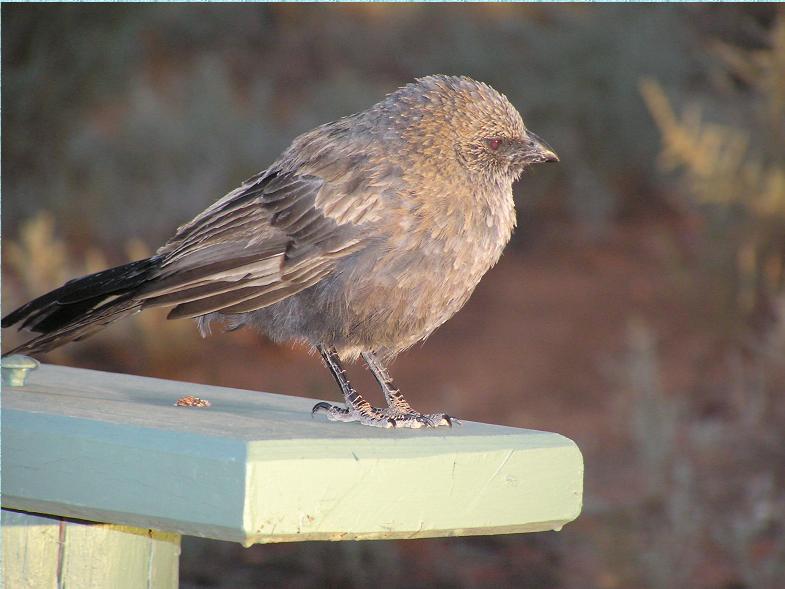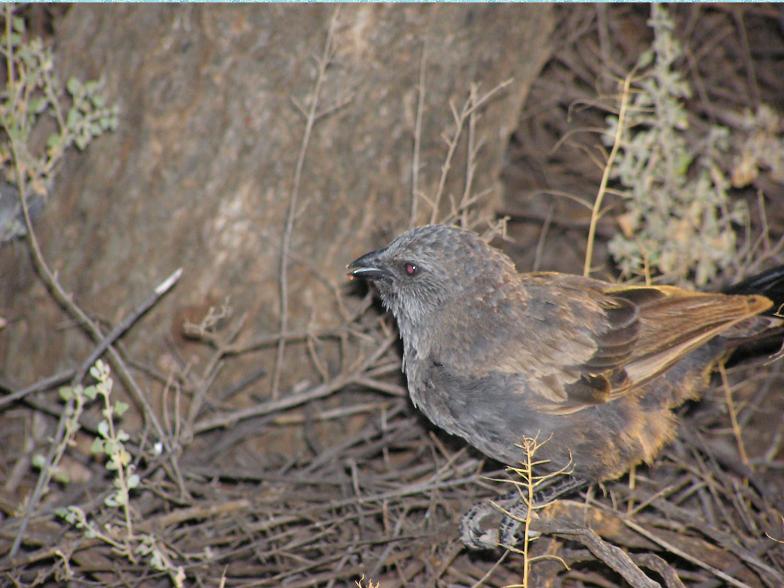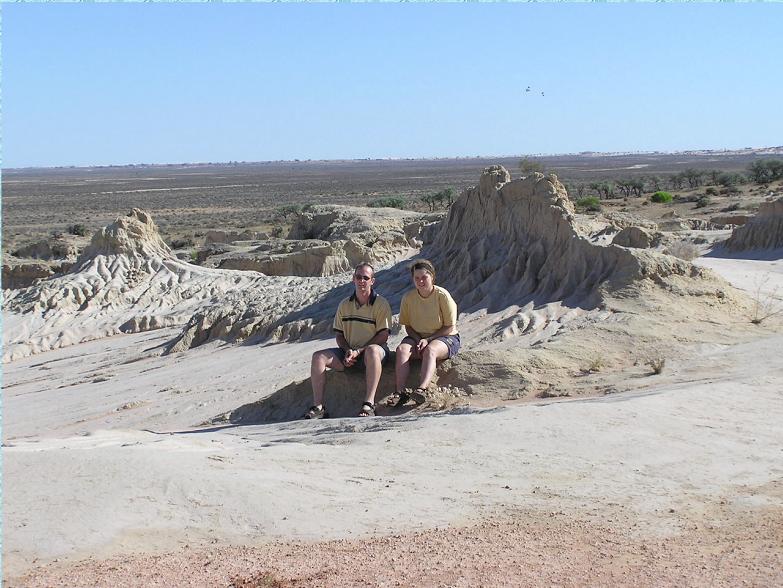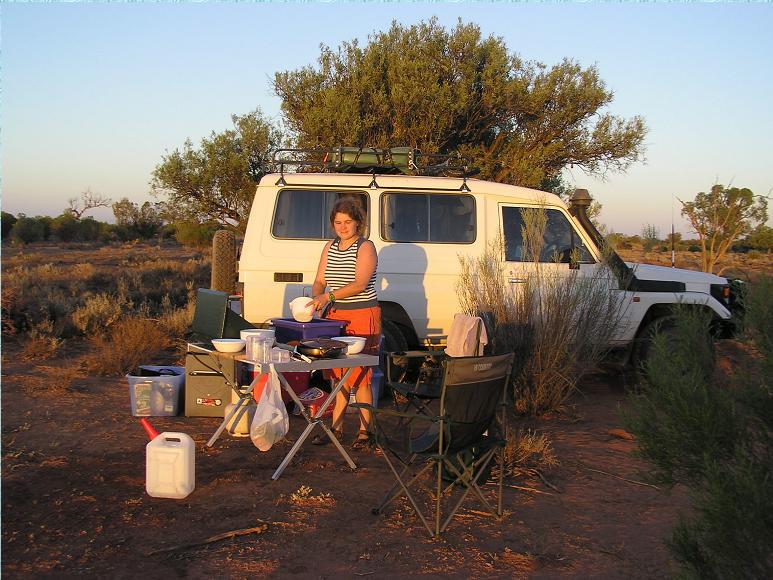
1/03/2004 - Stage 1, Day 13, Page 1 of 3 - Mildura to north of Yunta, SA
Well we're finally up to new stuff!
After leaving Mildura we drove up to Mungo National Park (24/02/2004).
This is the place where the oldest Australian human remains have been
found. The park is pretty much centered around a huge ancient lake bed
that dried up I think about 10 or 15 thousand years ago. On the east side
of the lake a big lunette has formed which is called The Walls of China. A
lunette is a very fancy type of sand dune that forms over thousands of
years. It's an enormous white crescent shaped dune amidst the red desert.
We camped at the Main Camping Ground in the Mungo National park on the day
we left Mildura. The next morning i got up early (Bradley does like to
sleep in!) and found the most amazing bird life. I probably saw more than
20 different bird species that morning. There was a flock of very cheeky
and friendly Apostlebirds (Struthidea cinerea) which
danced around me chirping. When I turned on the water tap to rinse my
hands they dashed in under me to drink the water. I managed to get a
couple of picture of them too - see following two pictures.


I also
identified Red-Rumped Parrots (Psephotus haematonotus), a Bourke's Parrot (Neopsephotus bourkii) and a pair of Butcherbirds (Cracticus sp.) calling to each other from different trees. Saw a number of raptors
too, but was not able to identify them.
Enough of the feather talk. That day we did the 70km tourist drive around
the lake and it was great. We took a picture of ourselves sitting on the
southern end of the Walls of China lunette (see below). I think the most
fun of all was had playing on the giant sand dunes at Vigars Well. We
climbed up one of the sand ridges and then took run-ups and had a long jump
competition over the edge of a dune. Bradley beat me by miles!

We took off from Mungo that afternoon and drove up to the Kinchega National
Park at Menindee Lakes (the lakes were all empty!). On the way we drove
along next to the Darling River which we noted had really green muddy water
flowing down it. Definately a problem there!
We camped that night (25/02/2004) in the National Park beside the Darling
River in a lovely camp site with plenty of mosquitoes! I counted a dozen on
the fly screen at one of the troopie windows the very next morning. I
picked up a yabbie that afternoon that was in the shallow water on the bank
of the river, but we put him back because he was too small to munch. We
also saw stacks of pelicans and cormorants below the weirs in the river
waiting for stray fish. We went for a lovely drive around the national
park the next morning and saw two shingle back lizards (stumpy tails), bush
chooks (emus) and loads of wedge tailed eagles among other birds.
Next day we drove through Broken hill and stopped in at Bruce Cook's for an
hour's visit before heading off down the Barrier Highway towards the
Flinder's Ranges. We drove along the highway to Yunta and then turned
north up a dirt road which headed to Arkaroola. About 50km up that road we
took a left turn towards Old Baratta station and Hawker and then pulled up
and camped about 10km down behind some shady trees off to the side of the
road. It was a really peaceful camp in the middle of the desert by
ourselves. There were no clouds and the stars were amazing!
The next morning I got up at first light to beat the flies to the dishes.
I even got keen and got the tripod out to take a picture!


